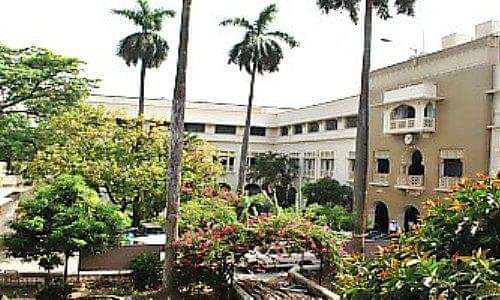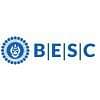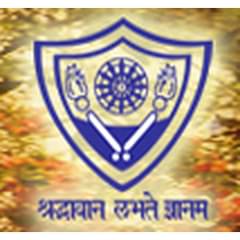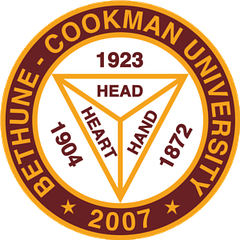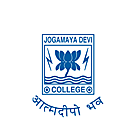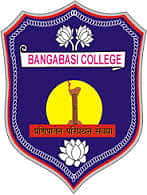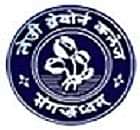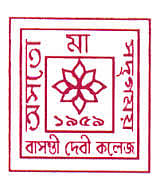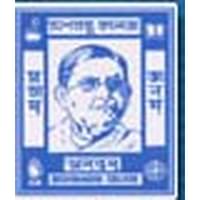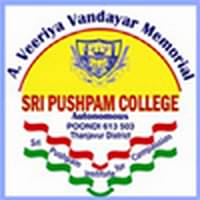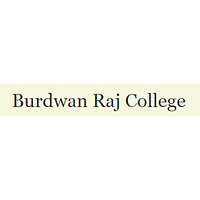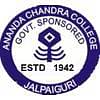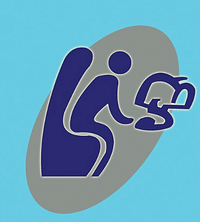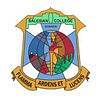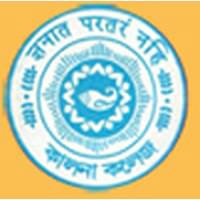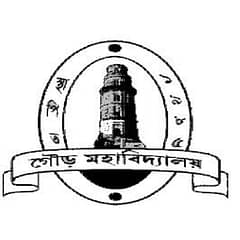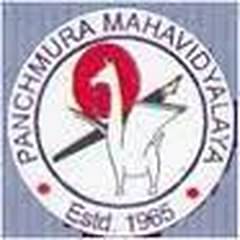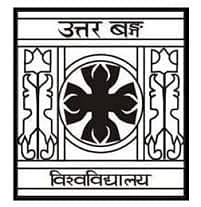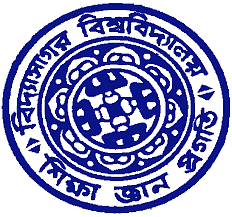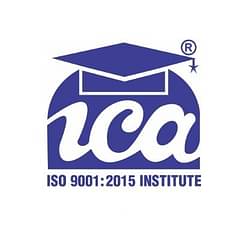Maulana Azad College B.A. (General) in Arabic Fees
The fee for B.A. (General) in Arabic at Maulana Azad College is 1147 INR. B.A. (General) in Arabic admission 2024 at Maulana Azad College will be based on CBSE 12th.
| Duration | Fees |
| Year 1 | 382 INR |
| Year 2 | 382 INR |
| Year 3 | 382 INR |
| Total Fees | 1147 INR |
Maulana Azad College B.A. (General) in Arabic Fees and Course Details
| Course name | B.A. (General) in Arabic |
| Duration | 3 Years |
| Course level | UG |
| Mode of Study | Regular |
| Total Fees | 1147 INR |
Maulana Azad College B.A. (General) in Arabic Eligibility Criteria
To pursue a Bachelor of Arts (B.A.) degree at Maulana Azad College Kolkata, candidates must meet the following eligibility criteria. Applicants should have completed their higher secondary education (10+2) or an equivalent examination from a recognized board. The minimum aggregate marks required may vary depending on the specific course and category. Additionally, candidates must fulfill any subject-specific requirements as specified by the college. Admissions are typically merit-based, and candidates may also need to appear for entrance examinations or interviews conducted by the college. It is advisable for aspiring students to refer to the official college website or prospectus for detailed and up-to-date eligibility criteria.
Documents Required :
- 12th mark sheet or equivalent
- CBSE 12th mark sheet or equivalent
- Birth certificate or any other proof of age
- Character certificate from the last attended institution
- Migration certificate from the last attended institution
- Category certificate (if applicable)
- Passport size photographs
- Aadhaar card or any other government-issued ID proof
Other Specializations in BA Available at Maulana Azad College
| Course | Duration | Total Tution fees |
| B.A. (Honours) in History | 3 Years | 1147 Annual |
| B.A. (Honours) in Philosophy | 3 Years | 1147 Annual |
| B.A. (Honours) in Political Science | 3 Years | 1147 Annual |
| B.A. (Honours) in Sociology | 3 Years | 1147 Annual |
| B.A. (Honours) in Bengali | 3 Years | 1147 Annual |
| B.A. (Honours) in English | 3 Years | 1147 Annual |
| B.A. (Honours) in Sanskrit | 3 Years | 1147 Annual |
| B.A. (Hons.) in Arabic(General) | 3 Years | 1147 Annual |
| B.A. (Hons.) in Persian | 3 Years | 1147 Annual |
| B.A. (Hons.) in Urdu | 3 Years | 1147 Annual |
| B.A. (Hons.) in Islamic History & Culture | 3 Years | 3440 Annual |
| B.A. (General) in Persian | 3 Years | 1147 Annual |
Top Courses at Maulana Azad College
Maulana Azad College Reviews
Overall: My college experience was a transformative journey filled with learning, growth, and unforgettable memories. From the bustling campus life to the inspiring lectures, every moment contributed to shaping my perspective and knowledge. The campus itself was a vibrant hub of activity, with students from diverse backgrounds coming together to exchange ideas and create lasting friendships. The classrooms were dynamic spaces where discussions sparked new insights, and professors challenged us to think critically and creatively. Outside the classroom, there were numerous opportunities for personal and professional development. From clubs and organizations to internships and research projects, I had the chance to explore my interests and hone my skills. One of the highlights of my college experience was the sense of community that permeated everything we did. Whether it was cheering on our sports teams, participating in campus events, or volunteering in the local community, there was a strong sense of belonging that made my college feel like a second home. Overall, my college experience was incredibly rewarding, and I am grateful for the friendships, knowledge, and experiences that will stay with me for a lifetime.
Placement: The placement cell at my college was dedicated to ensuring that students were well-prepared for the competitive job market. They organized various workshops, seminars, and training sessions to enhance our employability skills, including resume writing, interview preparation, and communication skills. The college had strong ties with industry partners, leading to a high placement rate. Companies from diverse sectors such as IT, finance, consulting, and manufacturing regularly visited the campus for recruitment drives. These companies offered lucrative job opportunities and internships to students, providing them with valuable industry exposure. One of the key highlights of the placement process was the personalized support provided by the placement cell. They conducted mock interviews, aptitude tests, and group discussions to help us perform well during the actual recruitment process. Additionally, the placement cell also offered career counseling and guidance, helping us make informed decisions about our future. Overall, the placement cell at my college played a crucial role in shaping our career paths, ensuring that we were well-prepared and confident to enter the workforce.
Infrastructure: Maulana Azad College in Kolkata, India, has a rich history dating back to its establishment in 1926. Initially known as Madrasah-i-Alia, it was founded by the great philanthropist and educationist Maulana Abdul Kalam Azad, who was a prominent leader in India's freedom movement. The college started as an institution for Islamic studies but later evolved into a full-fledged college offering undergraduate and postgraduate courses in various disciplines. Over the years, Maulana Azad College has played a significant role in providing quality education to students from diverse backgrounds. The college has a strong commitment to academic excellence and has produced many distinguished alumni who have excelled in various fields including politics, literature, science, and arts. Maulana Azad College has also been at the forefront of social change, promoting values of inclusivity and diversity. Today, Maulana Azad College continues to be a premier institution of higher education in Kolkata, known for its academic rigor, cultural diversity, and commitment to shaping the future leaders of India.
Faculty: My college boasted a range of top-notch facilities that greatly enriched my academic experience. The campus featured modern classrooms equipped with the latest technology, making lectures engaging and interactive. The library was a treasure trove of knowledge, housing an extensive collection of books, journals, and online resources that supported my studies and research. One of the standout facilities was the state-of-the-art laboratory, where I could apply theoretical knowledge to practical experiments, enhancing my understanding of complex concepts. The college also had well-maintained sports facilities, including a gymnasium and playing fields, encouraging a healthy and active lifestyle. The campus was also equipped with various amenities to cater to the needs of students. There were comfortable hostels for those living on campus, providing a conducive environment for study and rest. Additionally, the college had a cafeteria serving delicious and affordable meals, as well as a medical center to ensure the well-being of students. Overall, the college's facilities were instrumental in providing a holistic educational experience, combining academic excellence with opportunities for personal growth and development.
Hostel: The college hostel provides a comfortable and convenient living arrangement for students, especially those coming from out of town. The hostel's facilities include well-furnished rooms, clean bathrooms, and common areas for socializing and studying. The hostel also provides basic amenities such as laundry facilities, a mess for meals, and 24/7 security, ensuring that students can focus on their studies without worrying about their accommodation. One of the best aspects of the hostel is its sense of community. Living in close proximity to fellow students fosters a sense of camaraderie and friendship, making the hostel feel like a home away from home. The hostel also organizes various activities and events, further enhancing the sense of community among residents. However, there are some drawbacks to the hostel as well. The rooms can be small and cramped, and noise levels can sometimes be high, making it difficult to study. Additionally, the mess food may not always be to everyone's liking, and there may be issues with cleanliness and maintenance from time to time. Overall, the college hostel provides a convenient and comfortable living arrangement for students, fostering a sense of community and providing a conducive environment for academic and personal growth.

